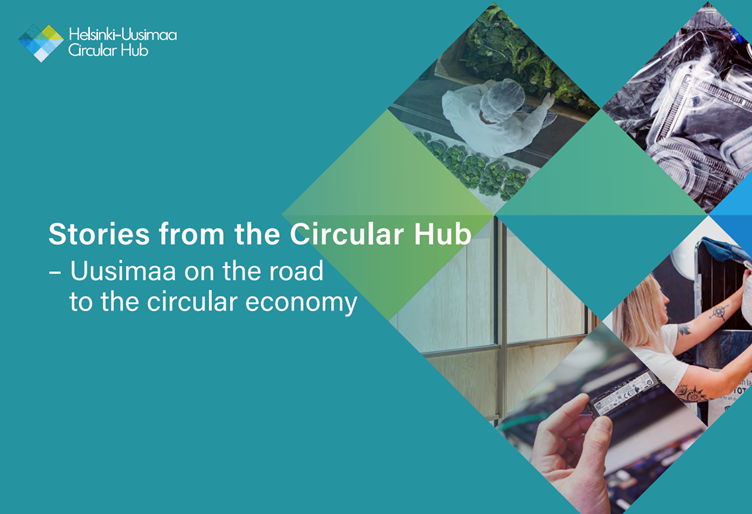
Its international attitude makes the Helsinki-Uusimaa Region a significant actor and enables important development activities with the future in mind. We work closely with other metropolitan regions and actors by the Baltic Sea. We give our sincere contribution to joint EU projects and take part in the activities of various organisations. This gives us the opportunity to be successful in what we do.
Helsinki-Uusimaa has also signed bilateral partnership agreements with some similar regions, the Memorandum of Understanding with Harju region in Estonia at the end of 2022 being the latest.
We are most and foremost an active member of networks focusing on the Baltic Sea Region, such as the Baltic Sea States Subregional Co-operation (BSSSC) and the Conference of Peripheral Maritime Regions (CPMR) with its Baltic Sea Commission (BSC).
The international cooperation of the Helsinki-Uusimaa Regional Council focuses on the Baltic Sea Region, which is where its most important partners also come from.
However, our Regional Council is also a member of European organisations like the ARC, ERRIN and Metrex. We feel it is rewarding to receive and share the newest information available on issues that are important to us, and which we can implement in our own region.
Together with other actors in Helsinki-Uusimaa, we have a representative office in Brussels, called the Helsinki EU Office. It gives us a vantage position in Europe. The office is actively following up on current issues like the legislative drafting of the EU, the EU financing programmes and the general possibilities for international cooperation.
We aim to create and be actively involved in various international partnerships and establish different innovative forms of EU cooperation, like initiatives that are making a difference at the local level. Consequently, our Regional Council supports Interreg programmes and develops a variety of EU projects.
Services provided by Helsinki-Uusimaa Regional Council:
- Networking and liaison, especially within the Baltic Sea Region.
- EU project development, support and partner search.
- Participation in international networks and assemblies.
- Maintaining a representative office in Brussels: Helsinki EU Office.
Baltic Sea States Subregional Cooperation
Our Regional Council is a member of the Baltic Sea States Subregional Co-operation (BSSSC). BSSSC is a political network for decentralized authorities in the Baltic Sea Region (BSR). It consists of 162 member regions in 10 Baltic Sea littoral states. During 2024–2025 the chairing region is Schleswig-Holstein in Germany.
The BSSSC policy areas are maritime policy, energy and climate, youth policy, Northern Dimension, cohesion policy, transport and infrastructure, culture and regional identity. The goals shared by all the member states are a clean Baltic Sea and a high living standard in the region.
CPMR – Conference of Peripheral Maritime Regions
The Conference of Peripheral Maritime Regions (CPMR) is a think tank and interest organisation for European regions. The organisation has 160 member regions in 28 countries. This organisation focuses on policy sectors like maritime, energy and transport issues, the cohesion policy, and the European governance and development.
Our Regional Council is actively involved in the Baltic Sea Commission (BSC). Mr Markku Markkula, Chairman of the Helsinki-Uusimaa Regional Board is in charge for Climate and Energy Working Group.
Other International Networks
Our Regional Council belongs to several international networks. By participating in them, we get beneficial information that can then be used in regional development planning. We are naturally also more than ready to share our good project results to be used in other European regions.
The Scandria®Alliance consolidates the TEN-T corridor between Scandinavia and the Mediterranean as a regional development and transport axis in Europe.
The Metrex, Network of European Metropolitan Regions and Areas stands for cooperation between ca 50 large cities and metropolitan areas in Europe. These network members exchange information and best practices on regional development and planning. We work to make an impact in the EMA, European Metropolitan Authorities, as well.
Our region takes part in the “Big Five” Northern regions cooperation including five mid-size regions from Northern Europe: the Capital Region of Denmark (Copenhagen), the Hamburg City State, the Amsterdam Metropolitan Area, the Stockholm Region and our region, Helsinki-Uusimaa. The cooperation focuses on the exchange of practice and development in the areas of innovation, business and regional development. Its aim is to share and upscale green solutions for a sustainable and green future in these five regions.
About 30 representatives of local and regional European authorities are involved in the Airport Regions Conference, ARC. The goal of the ARC is to develop the airport regions and to mitigate the harmful environmental effects caused by air traffic.
Brussels is the base for the European Regions Research and Innovation Network, ERRIN with about one hundred member regions and their offices in the city. ERRIN focuses on RDI policies and facilitates knowledge exchange, not to forget the project participation of its members. It is also an important EU-lobbying instrument.
The archipelagic areas of Stockholm and Uppsala in Sweden, and Åland in the southwest and Helsinki-Uusimaa in the south of Finland, join their forces in the Archipelago cooperation of the Nordic countries, with the main task being to plan and execute cross-border projects and events.
The Capital Regions Exchange, that is the CAPREX network brings together the regions adjacent to the capitals of Germany, Austria, Czechia and Finland for co-innovation and project development. Circular economy in different themes is particularly on the agenda.
Find out more:

Helsinki-Uusimaa Region
The Helsinki-Uusimaa Region is at the heart of Northern Europe, on the south coast of Finland and at the Baltic Sea. Although only covering three percent of our national land area, our Region is home to around 1.8 million inhabitants, which is about a third of the country’s total population.
Interested in collaborating with us? Please contact:

Janne Tamminen
Senior Adviser
janne.tamminen@uudenmaanliitto.fi
International networks, election preparation committee in Helsinki-Uusimaa

Eero Venäläinen
Director of Regional Development
eero.venalainen@uudenmaanliitto.fi
In charge of regional development work, Deputy Regional Mayor
Current
 News
News
1.7.2025
Helsinki Regional Council committing to green deal agreement: reducing the use of natural resources to the level of 2015
Circular economy is no longer a mere environmental accomplishment - it is also about competitiveness, security of supply and generally, savings. To promote a sustainable resource-wise future, the Helsinki-Uusimaa Regional Council has joined a regional green deal for circular economy. The green deal is a voluntary commitment in which the participating municipalities are offered support for concrete actions and gives them new opportunities to find solutions and start pilot projects.
 News
News
26.6.2025
Stories from the Circular Hub – Helsinki-Uusimaa on the road to circular economy
More and more sectors are now furthering a transition to circular economy. The Helsinki-Uusimaa Circular Hub was an import cooperation platform for circular economy solutions in the Helsinki-Uusimaa Region, founded in 2023. Highlights from the first project years of the Circular Hub have now been put together in the publication Stories from the Circular Hub, raising both the updates of the sectors and the actors of the regional Hub.
This page was last updated: 23.4.2025


